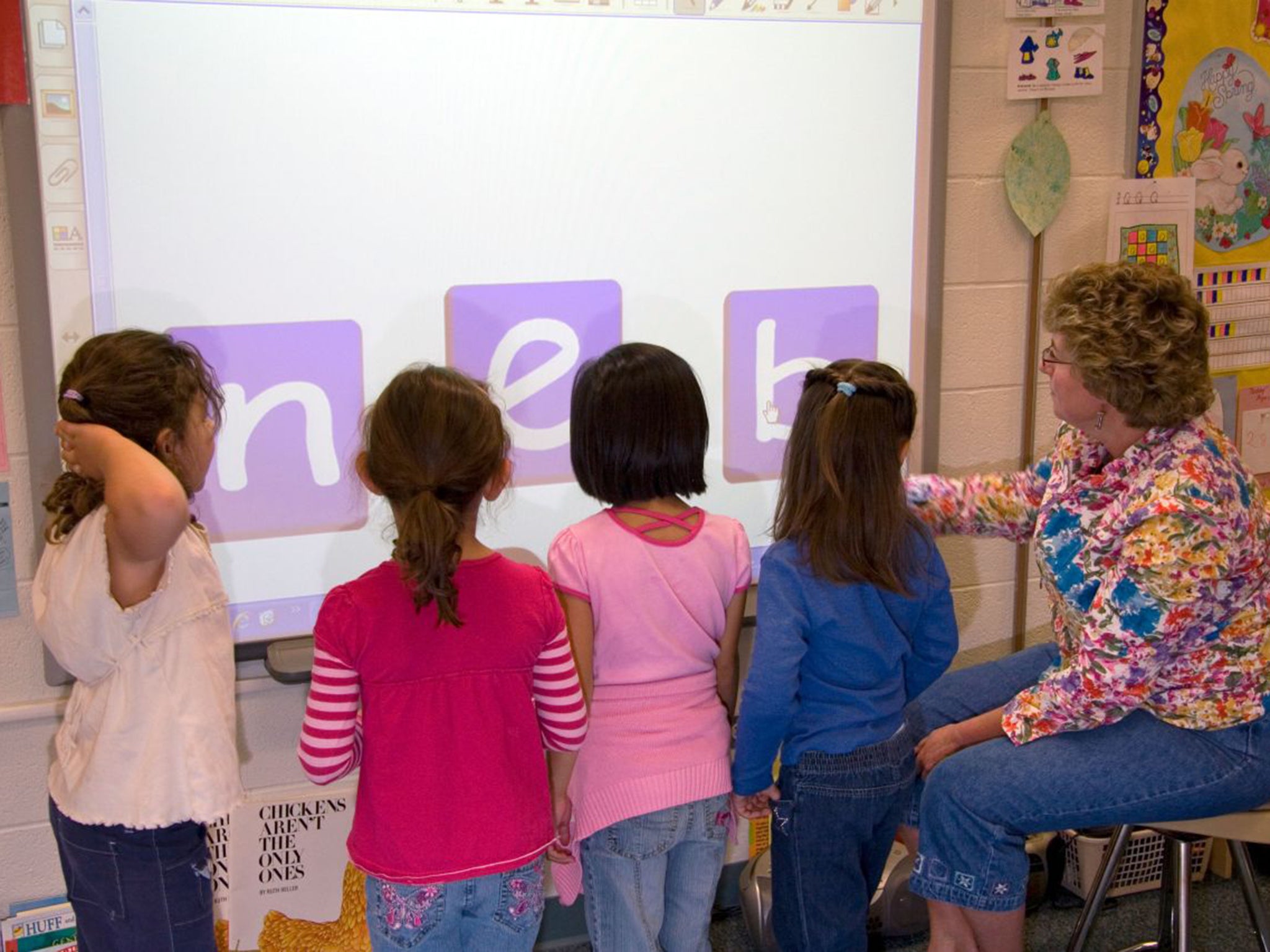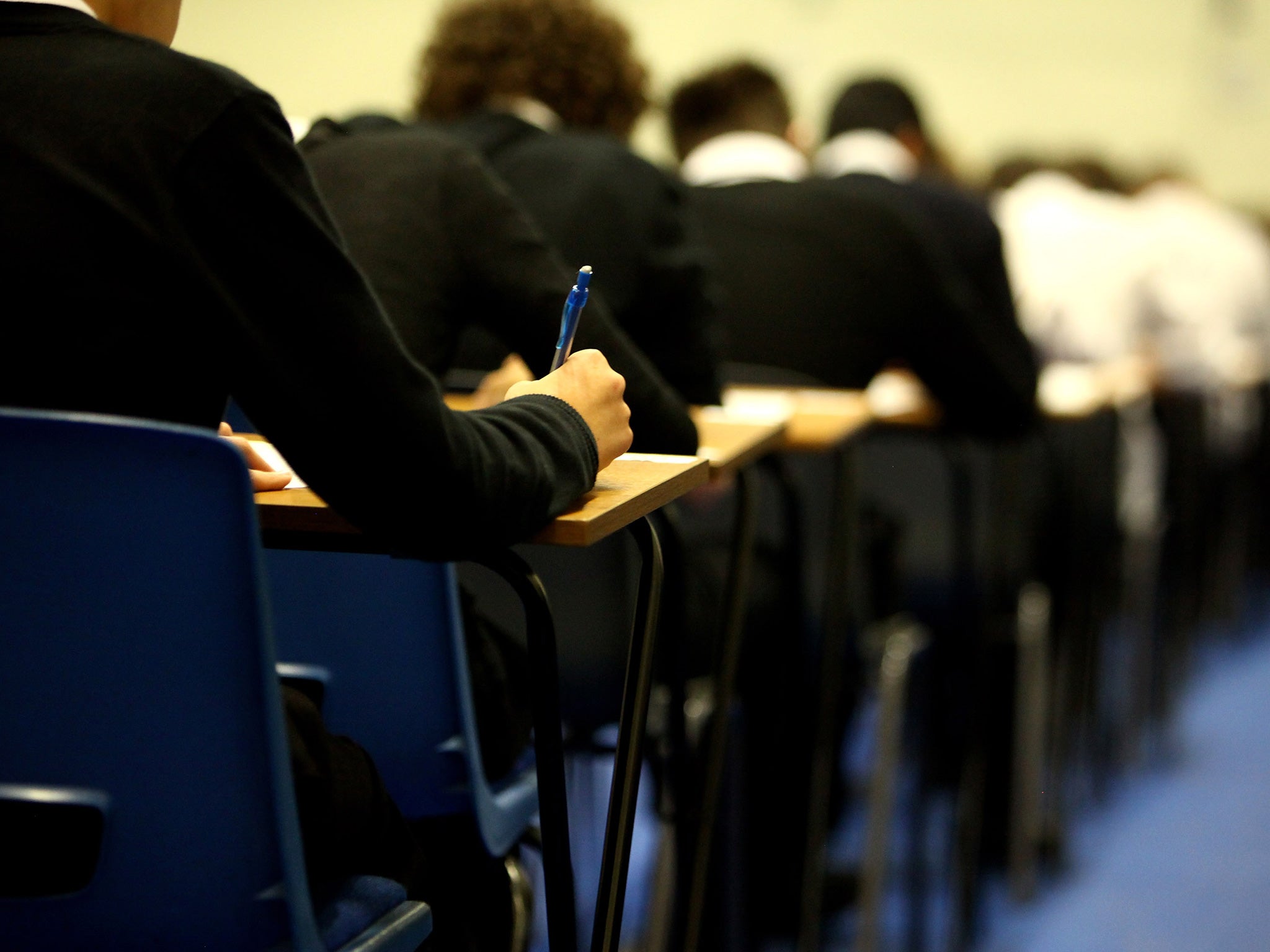Teachers vote to boycott 'baseline' tests on four- and five-year-olds
Union president denounces plan for strict curriculum as 'a crime... at a precious and valuable moment' in their lives

Your support helps us to tell the story
From reproductive rights to climate change to Big Tech, The Independent is on the ground when the story is developing. Whether it's investigating the financials of Elon Musk's pro-Trump PAC or producing our latest documentary, 'The A Word', which shines a light on the American women fighting for reproductive rights, we know how important it is to parse out the facts from the messaging.
At such a critical moment in US history, we need reporters on the ground. Your donation allows us to keep sending journalists to speak to both sides of the story.
The Independent is trusted by Americans across the entire political spectrum. And unlike many other quality news outlets, we choose not to lock Americans out of our reporting and analysis with paywalls. We believe quality journalism should be available to everyone, paid for by those who can afford it.
Your support makes all the difference.Teachers yesterday backed a boycott of controversial tests for four-year-olds due to be introduced in England next year.
Delegates at the National Union of Teachers conference in Harrogate voted unanimously in favour of persuading schools to refuse to take part in a pilot of the test this September – leading to a boycott of the tests in 2016.
In her address to the conference, NUT president Philipa Harvey said that it was a “crime” to test four- and five-year-olds on their arrival at school.
She said that the new baseline tests would take place at a time that was “particularly precious and valuable” for children and that they were “a waste of time”.
Teachers argue that four is too young an age to test children because they do not have the necessary attention span. The tests are intended to take place within two or three weeks of a child entering the reception class.

The NUT, the country’s largest teachers’ union, whose main strength is in primary schools, also opposes the results being used to rank primaries in league tables by comparing them with the results of national curriculum tests for 11-year-olds to see how much progress children have made.
Sarah Tomlinson, from Lambeth, south London, said their introduction was part of a “death by testing” strategy. “Why have so many psychotherapists and people in the field of mental health responded so vigorously in support of [our Too Young to Test] campaign? They know the impact [the tests] have on children.”
She said the tests were “part of Michael Gove’s legacy” but added: “Tristram Hunt [Labour’s education spokesman] needs to be responding to our campaign. You will get a lot of votes if you say you’re going to scrap these baseline tests.”
Helen Pope, a reception class teacher also from Lambeth, said: “It is no wonder four out of 10 teachers leave within their first year when their principles are attacked on this scale.”
Jennifer Harper, from Wandsworth, spoke of her niece, who will be aged four years and two months when she is due to sit the tests.
“My sister will keep her off school until the tests have passed, as there is no way she can compete with five-year-olds in the same class. This is an uneven playing field.”
Ms Harvey won applause from delegates when she told them: “This is going too far. It is up to us to make sure that we are telling everyone that this is outrageous....
“We need to be saying that there is no benefit to be had from all this testing. Not to the young people we work with. Not to the teachers who have to shape what they teach and how they teach. And not for our society, which needs creative, adaptable, resilient citizens.”
The NUT’s hardening stance came as children’s authors Philip Pullman, John Dougherty and Michael Rosen joined signatories of an open letter last week opposing the tests. Writers Penelope Leach and Susie Orbach also signed the letter. In it, they argued: “We have the most over-tested children in the developed world and the addition of the new baseline assessment will drive this culture to an even younger age.” They added that the new test was “dangerous for children”.
It is understood that the tests will not be compulsory. However, as they will be used by the education standards watchdog Ofsted to measure school performance, the number of heads declining to use them is expected to be minimal.
As part of the tests, children will be taken aside and asked questions. Once they have got three answers wrong, the tests will stop. Questions could include asking a pupil to write the first letter of their name and presenting them with three balls and asking them how many would be left if one was taken away. They would get progressively more difficult.
Ministers insist that the tests will help the process of ensuring that all children leave primary school with a good standard of reading, writing and maths.
Conference delegates subsequently passed another motion calling on schools to focus more on children learning through play until the age of seven.
They also warned that children were often missing out on break times and lunchtime because they were having to attend “coaching and cramming sessions” to improve their test performances. The conference voted for children to be given a statutory right to appropriate breaks in line with Article 31 of the UN Convention on the Rights of the Child.
“Play brings enormous benefits to children in terms of both social skill development and allowing imagination to hold sway,” said Christine Blower, general secretary of the NUT. “However, [it] is under threat as schools decide that they have to reduce the time spent on play-based activities in order to meet the requirements of the formal curriculum and steer children through the testing system.”
Join our commenting forum
Join thought-provoking conversations, follow other Independent readers and see their replies
Comments